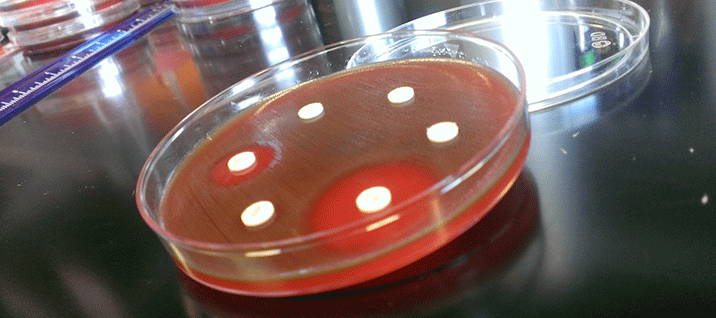
The major focus of our research is on interdisciplinary approaches to understand and develop novel interventions against antibiotic-resistant infections. With robust and extensive resources and expertise, we study antibiotic resistant pathogens from many angles. There is extensive basic research into mechanisms used by bacteria to resist antibiotics, virulence mechanisms to persist and replicate within the host, and studies of bacterial genome evolution and acquisition of antibiotic resistance. This work is enhanced by the ability to collect diverse clinical isolates in part through surveillance networks including the Georgia Emerging Infections Program (GaEIP) and the Gonococcal Isolate Surveillance Project (GISP). We study both synthetic and natural products in the search for novel antibiotics, supported by the Emory Chemical Biology Discovery Center, the Emory+Children’s Center for Drug Discovery, and the Emory Institute for Drug Discovery. We also study novel vaccines to prevent antibiotic-resistant infections in collaboration with the Emory Vaccine Center.
Importantly, our research encompasses the major antibiotic-resistant organisms causing disease today. This includes the so-called ESKAPE pathogens (Enterococcus faecalis, Staphylococcus aureus, Klebsiella pneumoniae, Acinetobacter baumannii, Pseudomonas aeruginosa, and Enterobacter spp. and E. coli) and the bacteria indicated as Urgent Threats by the CDC (Clostridium difficile, Neisseria gonorhoeae, and carbapenem-resistant Enterobacteriaceae).
This broad and cutting-edge research program will continue to lead to critical novel insights into the causes and mechanisms of antibiotic resistance as well as new interventions to prevent drug-resistant infections, preserving the power of antibiotics for generations to come.
Novel method to identify effective antibiotic combinations to kill pan-resistant bacteria
A sneaky form of antibiotic resistance called "heteroresistance" is more widespread than previously appreciated, Emory researchers found. But tracking heteroresistance might guide the choice of antibiotic combinations that can defeat bacteria regarded as invincible.

